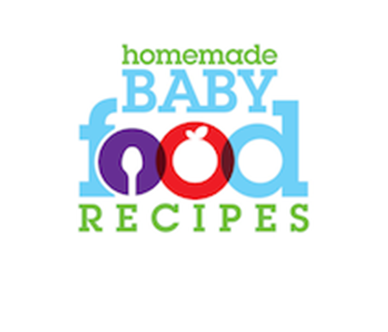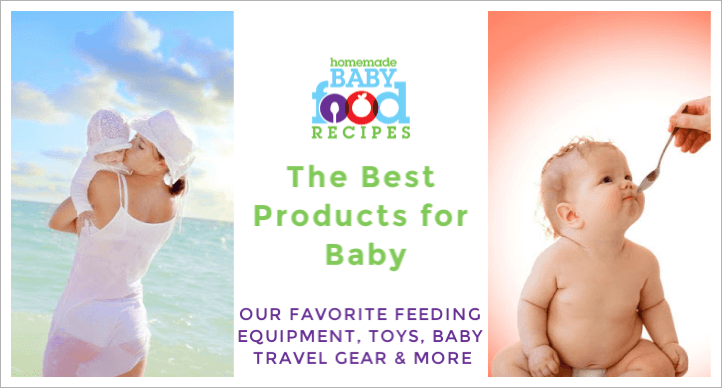Giving Baby Sesame Foods – Sesame Allergy Information
If you’re unsure about giving baby sesame foods such as hummus and tahini, then this page will help you understand more about infant sesame allergy and the potential risks to your baby.
PLEASE NOTE: The information given here is meant as a guide. It does not replace professional medical advice. You should always discuss the introduction of any new foods with your child’s doctor.
what is a sesame allergy?
Sesame seeds come from the seed pods of the sesame plant. Some people experience a severe reaction to the protein found in sesame seeds and their derivatives.
Over recent decades, worldwide reports of allergic reactions to sesame seeds have greatly increased. The reason for this is not yet clear, but could be because
- sesame seeds are becoming more widely used across the world
- the rate of diagnosis and reporting of sesame allergy has improved
- more people are developing sensitivities to sesame foods
Allergy to sesame seeds is now the 9th most common food allergy worldwide.
This has prompted the European Commission and Canada to add sesame to their lists of major food allergens for labelling purposes. This means that manufacturers must clearly indicate the presence of sesame in their products in these countries.
The US FDA, however, has not followed suit – so Americans suffering from sesame allergies have a hard time establishing which foods are safe for them to eat.
The rates of sesame allergy among children are particularly high…
…ranking 4th in Australia, behind egg, milk and peanut allergies and 3rd in Israel, where sesame foods like halva and tahini are popular and are often recommended for babies because of their high protein and iron content.
what are the risks?
An allergy to sesame can provoke a very severe allergic reaction known as anaphylactic shock or allergic shock, which can be fatal.
Your baby is at a higher risk of experiencing an allergic reaction to sesame if he iss
- under a year old
- if there is a family history of food allergy
- if he suffers from atopic dermatitis, or if there is a family history of atopic dermatitis
What is the connection between sesame allergy and atopic dermatitis?
Recent studies in Israel evaluated 10 patients with sesame allergies.
Researchers noticed that ALL these patients (70% of whom were under 2 years old) were suffering from atopic dermatitis.
It had already been established that infants with this condition are more prone to food allergy than would normally be expected – but this high rate of allergy to sesame seeds prompted researchers to recommend that sesame seeds should be eliminated from the diets of all infants with – or with a family history of – atopic dermatitis.
Read the article here – Allergy to Sesame Seeds in Infants
what are the symptoms of sesame allergy?
An allergy to sesame seeds can cause any of the typical food allergy symptoms, including
- vomiting
- nausea
- diarrhea
- stomach cramps
- hives
- skin rash
- headaches
- wheezing
- sneezing
- congestion
- coughing
- runny nose
If your baby displays ANY of these symptoms after eating foods containing sesame seeds or oil – however mild the reaction – you should seek medical advice at once. A future reaction could be a lot more severe.
how is sesame allergy diagnosed?
If you suspect that your baby has a sesame allergy, you should discuss this with your doctor.
Some experts feel that the typical “skin prick test” is not reliable for spotting allergies to sesame and that cases have been misdiagnosed.
They recommend that infants with suspected sesame allergies are referred to specialist allergy clinics, which are equipped to undertake food challenges in addition to the skin prick tests.
alternative names for sesame
If you are trying to avoid sesame foods in your baby’s diet, then it’s important to note the other names by which sesame is known…
- sesamum indicum
- benne/benneseed/benniseed
- gingelly/gingilly oil
- til/teel
- sim sim
- anjonjoli
- flavouring
- seeds
- sesamol/sesamolina
- tahina/tahini/tehini
- vegetable oil (can contain sesame oil)
list of foods and products containing sesame
If your baby is diagnosed with a sesame allergy, you should be provided with a list of foods and products to avoid.
Sesame seeds and oil are used in the food industry (mainly for baking), the cosmetics industry and the pharmaceutical industry. Unfortunately, cross contamination can occur when sesame seed products are made on the same line as non-sesame seed products.
You also need to take great care if you dine out with your baby, as sesame seeds can very easily “jump” from one plate to another.
It is also important to note that sesame oil is made by cold pressing (squeezing) the seeds. It is not refined and can contain the proteins responsible for allergic reactions.
Heating sesame foods does not reduce their allergenicity.
Items containing sesame include
- bread
- biscuits/cookies
- salads/salad dressings
- sauces
- dips
- hummus/houmous
- tahini/tehini/tahina
- halva
- muesli
- breaded foods
- gomashio
- processed meats/sausages
- tempeh
- soups
- snack foods
- vegeburgers
- stir fries
- cereals
- poultry
- chutneys
- risottos
- the herbal drink Aqua Libra
- band-aids/plasters
- liniments
- ointments
- soaps
- sunscreen
- hair products
- fungicides
- insecticides
Can babies eat hummus?
Some recipes for hummus call for tahini (ground sesame seeds). However, many Middle Eastern recipes do not require tahini and are perfectly tasty without it.
Visit our hummus recipes for baby page which includes instructions for making a tahini-free version – perfect if you would prefer to avoid sesame in your baby’s diet.
My baby is allergic to sesame seeds – what else might he be allergic to?
People who suffer from sesame allergies may also react to
- poppy seeds
- kiwi fruit
- rye
- hazelnuts
- caraway seeds
- sunflower seeds
- flax seeds
If your baby is diagnosed with a sesame allergy, then his allergist may advise avoiding all seeds.
Will my baby outgrow his sesame seed allergy?
This is unclear. It seems that some children DO outgrow their allergies to sesame, but the true figures are unknown.
recommendations
Recommendations for the timing of introducing sesame to babies vary around the world.
In the UK, for example, the Food Standards Agency suggests offering sesame from 6 months of age (although whole seeds should NEVER be offered to a young baby, due to the risk of choking).
In the US, some pediatricians will recommend giving ground sesame seeds from 8 months of age – others suggest waiting until baby is at least a year old!
Allergic reactions to sesame can be so severe, however, that some experts believe sesame seeds should be treated in the same way as tree nuts and avoided until baby is at least 3 years old.
If you are considering including sesame in your baby’s diet, then discuss this with your child’s doctor, who will take into account your family history of food allergy and atopic dermatitis when helping you with this decision.
Following a sesame-free diet
If your baby has a sesame allergy which has led to the elimination of many foods from his diet, it is important to discuss his nutritional needs with a dietitian. This is because sesame seeds contain
- vitamin B1
- calcium
- magnesium
- zinc
- dietary fibre
- phosphorus
- iron
Your baby’s dietitian will be able to suggest suitable alternative sources of these valuable nutrients.


